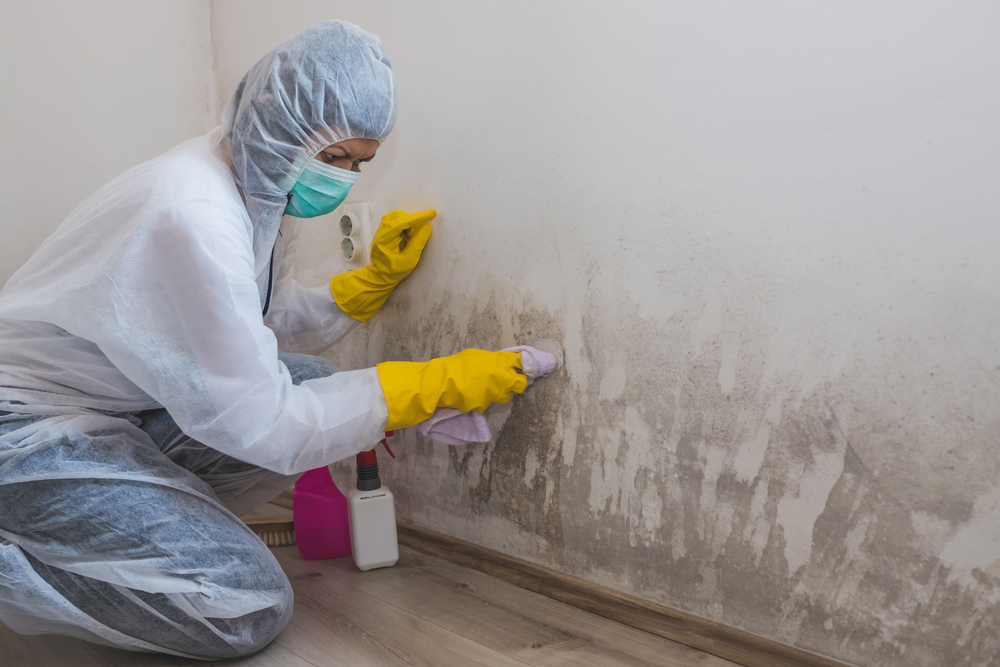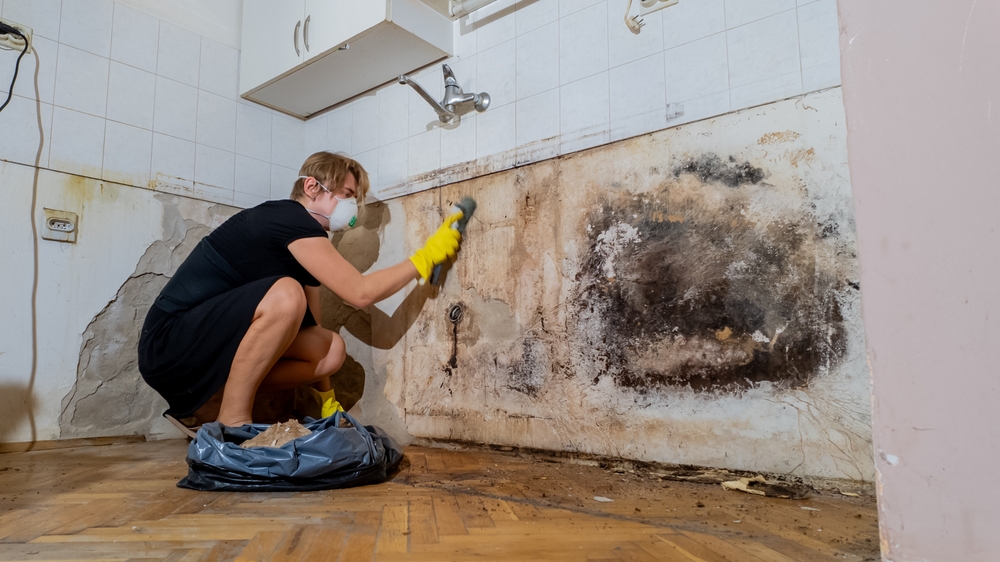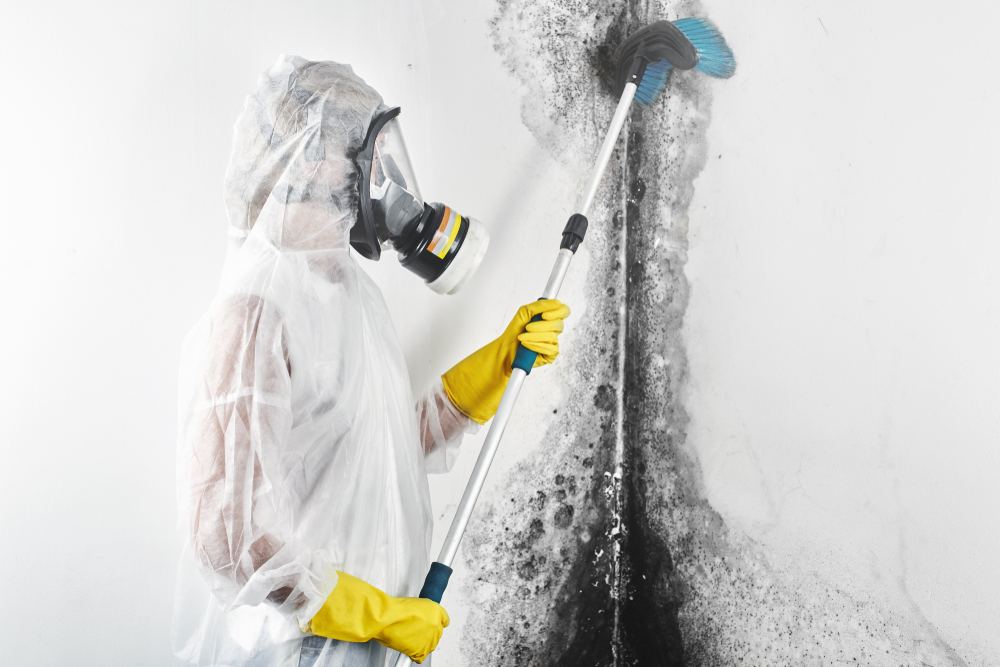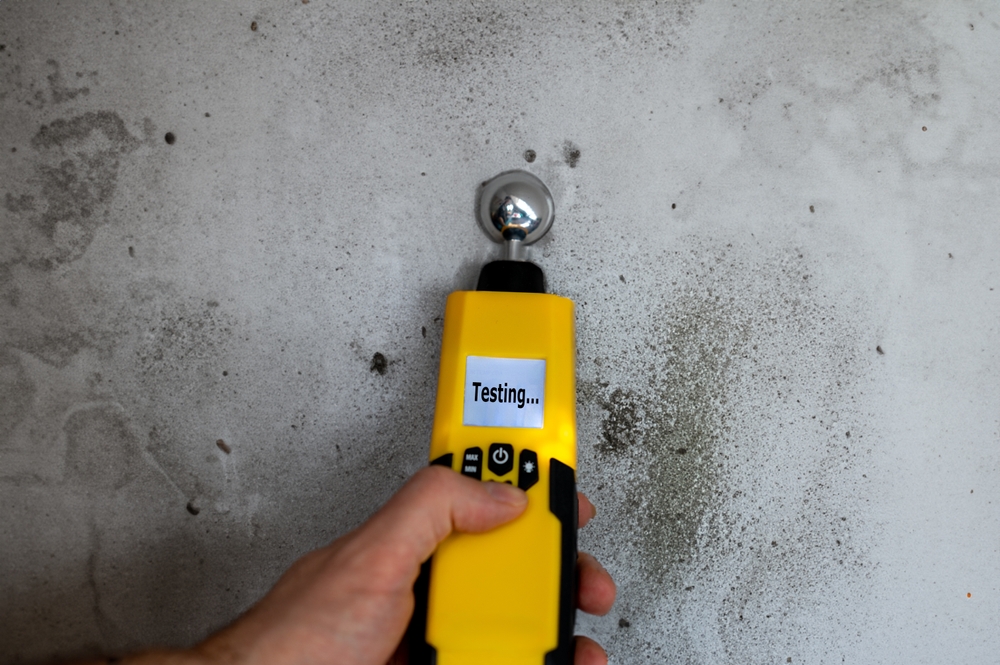Mold can really affect your company; it is not only unattractive. In Philadelphia, the combination of historic buildings, harsh winters, and humid summers may make mold a frequent enemy. This book clarifies why mold matters, how to safely remove it, and what actions you can take to maintain the health and safety of your property.
Old infrastructure and Philadelphia’s climate might cause mold development. High humidity and seasonal variations cause mold issues for many commercial buildings. If not correctly handled, mold can compromise your property, endanger your staff, and even cause legal problems. Mold remediation for commercial properties in Philadelphia will help you with local rules and safety criteria, thereby guaranteeing the seamless operation of your company.
Understanding Mold in Commercial Properties
What Causes Mold in Philadelphia?
Mold likes warmth and wetness. Philadelphia’s climate offers mold lots of chances for growth. These are some typical reasons:
- Climate Factors: The ideal surroundings are produced by humid summers and cool, wet winters.
- Leaks and Flooding: Leaky roofs, plumbing, or even flooding can let mold show up.
- Poor Ventilation: Areas with minimal airflow—such as closed rooms or basements—are more likely to have poor ventilation.
- HVAC Problems: Broken heating, ventilation, and air conditioning systems can disseminate mold spores and dampness.
Types of Mold Common in Philadelphia
Inappropriate treatment of some molds might be dangerous. The most often occurring forms consist in:
- Stachybotrys (Black Mold): Dark in hue, stachybotrys (Black Mold) can cause major medical problems.
- Aspergillus: Often present in wet environments, aspergillus can compromise respiratory function.
- Cladosporium: This fungus could set off respiratory issues and allergies.
Signs of Mold Infestation
Preventing mold starts with knowing what to look for:
- Visible Growth: Look for obvious mold on floors, ceilings, or walls.
- Musty Odors: Strong, musty smells can be a warning indicator.
- Health Complaints: Workers or renters claiming allergies or respiratory problems could be coming into contact with mold.

Why Commercial Mold Remediation Requires Professionals
Eliminating mold from a tiny room differs from managing it in a larger construction. The following explains the need of expert assistance:
- Complexity of Commercial Properties: DIY mold eradication is dangerous in large areas, complicated HVAC systems, and under tight municipal regulations.
- Health and Safety Compliance: OSHA and Philadelphia’s Health Code demand appropriate mold removal to safeguard health.
- Business Continuity: Professionals assist you keep your company running smoothly by working quickly and effectively, therefore avoiding protracted downtimes.
Step-by-Step Mold Remediation Process
A competent mold removal company operates according to a well defined procedure. Let us dissect it:
Step 1: Inspection & Testing
Experts examine the building before any renovation begins. they:
- Assess the Mold: Search for all mold locations using moisture mapping and air quality tests.
- Look in Hidden Places: Search hidden mold behind walls, in HVAC systems, and in basements.
Step 2: Containment
Once mold is discovered, the area is locked off:
- Preventing Spread: Experts inhibit mold from spreading to other regions using negative air pressure and plastic barriers.
- Safety First: Containment inhibits the spreading of spores and guards your staff.
Step 3: Mold Removal
Mold is then meticulously removed:
- HEPA Vacuuming: Specifically designed vacuums with HEPA filters pick small mold particles.
- Antimicrobial Treatments: These compounds destroy mold and stop its return.
- Disposal of Damaged Materials: If damaged materials—like drywall—are too severely deteriorated, they can be disposed of.
Step 4: Cleaning & Sanitization
The space is meticulously cleaned following removal:
- HVAC System Cleaning: Cleaning the HVAC systems is crucial since mold can lurks in air ducts.
- Surface Disinfection: Every surface is cleaned with sanitizers to eradicate any last traces of germs.
Step 5: Restoration & Repairs
Eventually, the property is rebuilt:
- Rebuilding Damaged Structures: New drywall, flooring, or insulation is put in damaged areas as needed.
- Fixing the Root Causes: Repairing leaks and enhancing ventilation helps to fix the root causes so preventing mold from resurfacing.
Philadelphia-Specific Considerations
Philadelphia’s special surroundings call for further attention:
- Local Regulations: PA state legislation and the Philadelphia Health Department have tight rules. Professionals know these guidelines really well.
- Historic Buildings: Many Philadelphia structures are old and classic. Remedial action has to be done without compromising original characteristics.
- Insurance Claims: Philadelphia commercial property insurance could cover mold damage. Professionals can assist in your navigating of these claims.

Preventing Mold in Commercial Properties
Stopping mold before it starts is the easiest approach to manage it. The following are some guidelines:
Proactive Maintenance
- Regular HVAC Inspections: Check your heating and cooling systems often in HVAC inspections.
- Moisture Control: Dehumidifiers and appropriate drainage systems help to control moisture.
- Quick Leak Repairs: Fix any leaks right moment they start to show.
Employee and Tenant Education
- Early Reporting: Early reporting of water damage should be taught to staff members and tenants alike.
- Simple Guidelines: Straightforward Rules: Make a list of early mold indicators.
Post-Remediation Monitoring
- Scheduled Checks: Planned checks on air quality can find mold before it spreads.
- Continuous Improvement: Maintaining upkeep will help to prevent future mold problems.
Case Study: Successful Remediation in Philadelphia
Imagine a Philadelphia office building in the downtown experiencing HVAC system mold. The structure combined current use with historic design, which made mold remediation challenging. The experts treated it this way:
- Rapid Containment: They fast sealed off the impacted sections to guard other sections of the construction.
- Efficient Mold Removal: Using HEPA filters and antimicrobial treatments, they effectively eliminated the mold with least disturbance.
- Post-Remediation Verification: Following cleaning, they tested extensively to make sure no mold still persisted.
- Minimal Downtime: Their fast response allowed the building to be reopened without a protracted closure period.
This case demonstrates how skillfully and carefully even difficult projects can be managed with the correct team.
Choosing a Mold Remediation Company in Philadelphia
Choose prudently when you need expert assistance. These guidelines can help you choose the correct company:
Key Qualifications
- IICRC Certification: Look for businesses with the appropriate certificates—IICRC certification.
- Local Experience: One really needs a corporation familiar with Philadelphia’s buildings and laws.
- Emergency Services: If mold shows up unexpectedly, 24/7 access is absolutely vital.
Questions to Ask
Ask these questions before calling on someone:
- References: Could they send case studies or testimonies?
- Warranties: On their work, do warranties or guarantees abound?
- Insurance Coverage: Are they totally covered should an accident or additional damage occur?

FAQs
Q: Commercial mold cleanup takes what length of time?
A: The area’s size and the degree of the mold will determine it. A complete process could last several days to many weeks.
Q: Does insurance in Philadelphia cover mold removal?
A: Though this varies, some insurance policies cover mold. See your provider and request expert guidance.
Q: Can I manage minor internal mold problems?
A: Though small problems could look under control, hidden mold can lead to major concerns. Usually the best option is professional assessment.
Q: Should one violate Philly’s mold rules, what fines apply?
A: A non-complying might lead to fines and legal trouble. Safety and business continuity depend on following local norms.
Conclusion
A major problem affecting business buildings is mold that calls for quick, expert action. Philadelphia, with its distinct climate and historic structures, is especially more important to act fast in. Expert mold removal supports legal compliance, property preservation, and employee protection. Understanding the reasons, implementing a cautious remedial action, and acting early to stop mold can help you to guarantee a safe and healthy surroundings for your company.
See a qualified Philadelphia mold remediation specialist right now if you believe mold exists on your commercial property or wish to preventative actions. They will evaluate your circumstances and offer a solution customized to your demands, therefore guaranteeing adherence to local laws and the general safety of everyone using your building.
Philadelphia Restoration Services
https://www.google.com/maps?cid=3399342399556699153
+1 267 668 0013
https://philadelphiarestorationservices.com/

